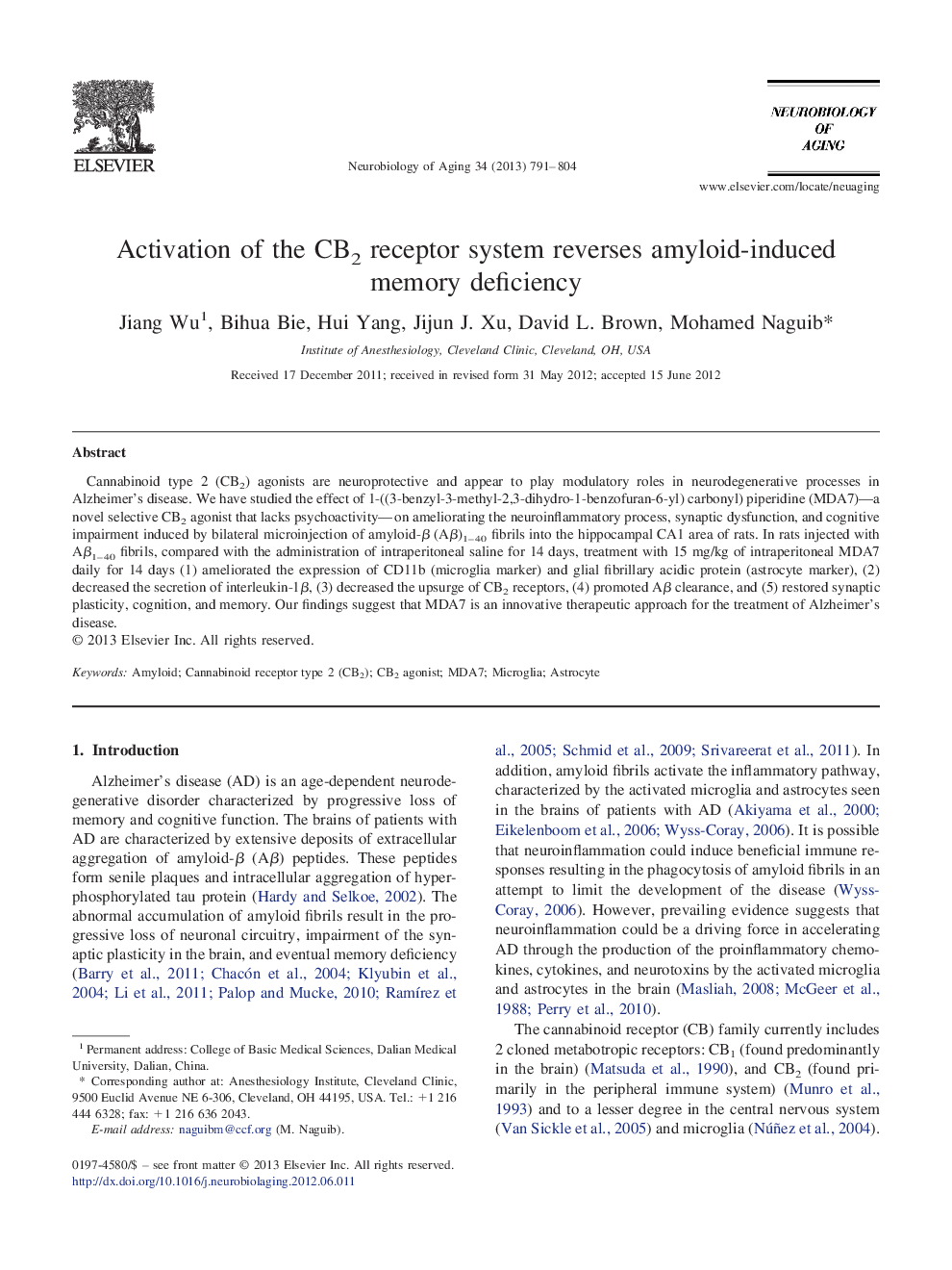| Article ID | Journal | Published Year | Pages | File Type |
|---|---|---|---|---|
| 6807818 | Neurobiology of Aging | 2013 | 14 Pages |
Abstract
Cannabinoid type 2 (CB2) agonists are neuroprotective and appear to play modulatory roles in neurodegenerative processes in Alzheimer's disease. We have studied the effect of 1-((3-benzyl-3-methyl-2,3-dihydro-1-benzofuran-6-yl) carbonyl) piperidine (MDA7)-a novel selective CB2 agonist that lacks psychoactivity-on ameliorating the neuroinflammatory process, synaptic dysfunction, and cognitive impairment induced by bilateral microinjection of amyloid-β (Aβ)1-40 fibrils into the hippocampal CA1 area of rats. In rats injected with Aβ1-40 fibrils, compared with the administration of intraperitoneal saline for 14 days, treatment with 15 mg/kg of intraperitoneal MDA7 daily for 14 days (1) ameliorated the expression of CD11b (microglia marker) and glial fibrillary acidic protein (astrocyte marker), (2) decreased the secretion of interleukin-1β, (3) decreased the upsurge of CB2 receptors, (4) promoted Aβ clearance, and (5) restored synaptic plasticity, cognition, and memory. Our findings suggest that MDA7 is an innovative therapeutic approach for the treatment of Alzheimer's disease.
Keywords
Related Topics
Life Sciences
Biochemistry, Genetics and Molecular Biology
Ageing
Authors
Jiang Wu, Bihua Bie, Hui Yang, Jijun J. Xu, David L. Brown, Mohamed Naguib,
